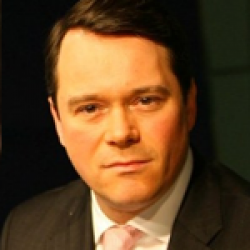Improving global connectivity: Transport, energy and telecommunications networks
Ministerial Event
Connectivity is a 21st century mega-trend that is reshaping the world far beyond the transport sector. Integrating transport planning with other policy areas is challenging. Yet transport is becoming more and more interdependent with electricity infrastructure as it decarbonises. The rise of connected vehicles and infrastructure increasingly intertwine it with telecommunications. And an integrated approach for transport, housing and commercial development is becoming critical to reduce congestion, improve access and foster sustainability. With regard to funding transport infrastructure, road transport in particular has much to learn from the energy and telecommunications sectors, which have advanced much further in managing demand by charging users.
Key facts:
- The World Economic Forum estimates the worldwide investment in infrastructure is expected to be $79 trillion by 2040, but the actual global investment need is closer to $97 trillion. Average annual global infrastructure investment would need to increase by approximately 23% per year to close the financial shortfall.
Lead questions:
- How quickly will electrification of transport progress and what infrastructure investment is needed? How is hydrogen offering new opportunities for electric mobility?
- How are emerging information and telecommunication technologies revolutionising global connectivity? How can policy makers respond to related challenges to establish supportive policy and governance frameworks?
- How can policy makers and industry work together to improve global connectivity and ensure it benefits all parts of society
- What lessons from more integrated transport, energy, and telecommunications networks are emerging from national experience?
Background reading:
- Strategic infrastructure planning: International best practice (ITF 2017) [https://www.itf-oecd.org/strategic-infrastructure-planning]
Axel Threlfall

Axel Threlfall is Editor-at-Large, Reuters, based in London. Alongside his editorial duties, he hosts high-profile engagements and thought leadership events for and on behalf of Reuters and Thomson Reuters, such as the Newsmaker series and the World Economic Forum news programs in Davos. He was previously Lead European Anchor for Reuters Digital Video. Prior to joining Reuters, Axel spent four years as an anchor for CNBC in London. Before that, he was an editor with The Wall Street Journal in New York and a news reporter for Bloomberg in London. He has also advised businesses and NGOs on their dealings with the international media. Axel is frequently asked to moderate events for international organizations, including the United Nations and the OECD. He has a BA in History from Durham University and a postgraduate degree in journalism from City University, London.
Rachel Kyte
Rachel Kyte is Chief Executive Officer of Sustainable Energy for All (SEforALL), Special Representative of the UN Secretary-General for Sustainable Energy for All and Co-Chair of UN-Energy. She is a leading advocate for sustainable development and drives SEforALL’s work to mobilize action towards its 2030 goals on universal energy access, energy efficiency and renewable energy. As SRSG, she is the UN point person for the global goal on sustainable energy. Until December 2015 Rachel Kyte served as World Bank Group Vice President and Special Envoy for Climate Change, leading integration of climate across the Bank Group’s work as well as support for an ambitious agreement at the 21st Convention of the Parties of the UNFCCC (COP 21). She was previously World Bank Vice President for Sustainable Development and was the International Finance Corporation Vice President for Business Advisory Services. A recipient of numerous awards for leadership for climate action and sustainable development, she is a Professor of practice in sustainable development at Tufts’ Fletcher School of Law and Diplomacy.
Enrique Medina Malo

Enrique Medina Malo is currently Chief Policy Officer at Telefónica S.A
He joined Telefónica Legal department in 2006, as Head of Public Law and hold different responsibilities in the field of Regulation and Competititon legal afairs. In 2008 he was appointed Chief Legal Officer of Telefónica, S.A., reporting to the Group´s General Counsel and in September 2011, General Counsel of Telefónica Europe, reporting to the regional CEO. Before joining Telefonica, Enrique Medina Malo served as in the Spanish Government Legal Service in different posts: Ministry of Science and Technology, Ministry of Industry and Energy and the High Court of Cataluña.
He holds a law degree from Carlos III University of Madrid (1994) and was admitted to the Spanish Government Legal Services in 1997 (Abogado del Estado).